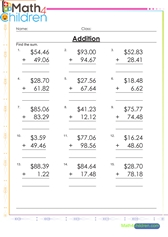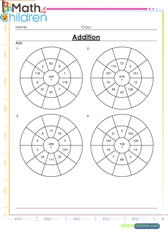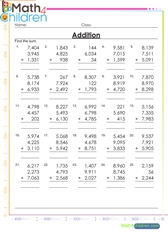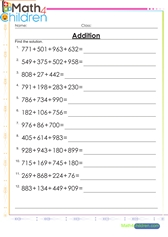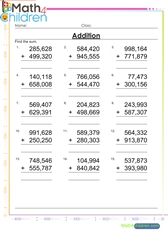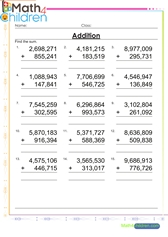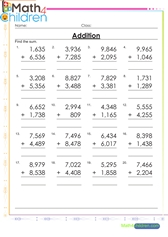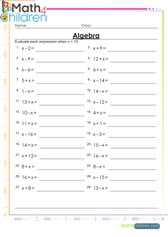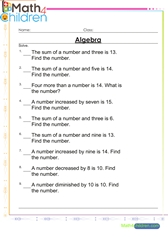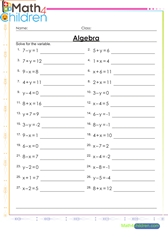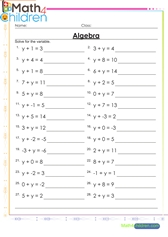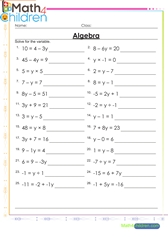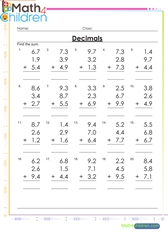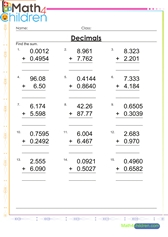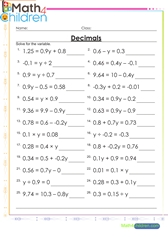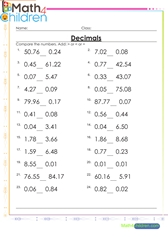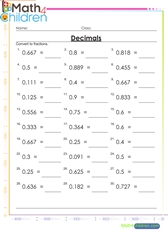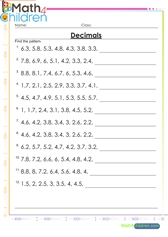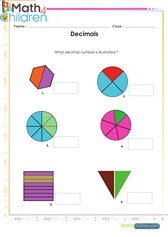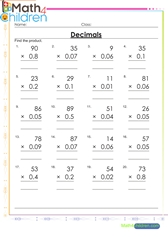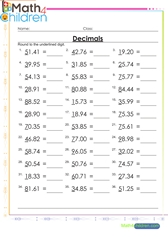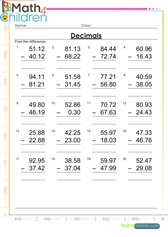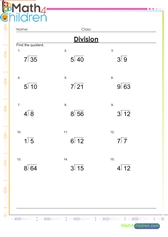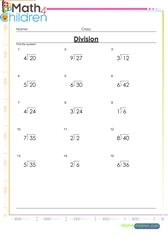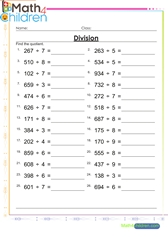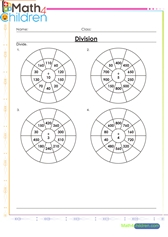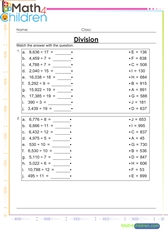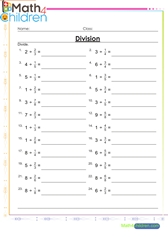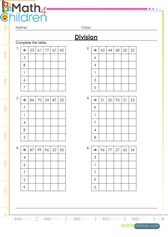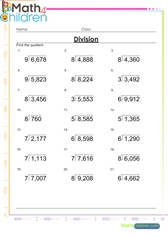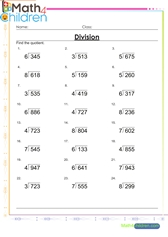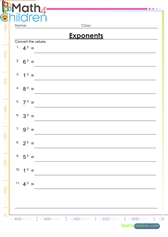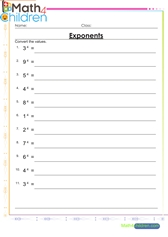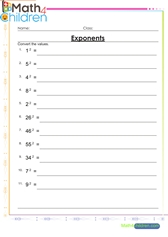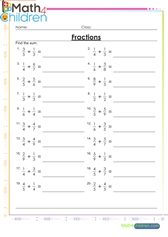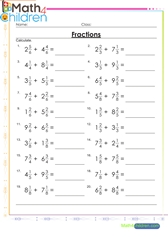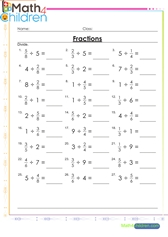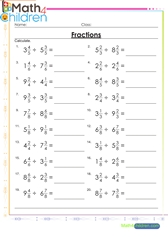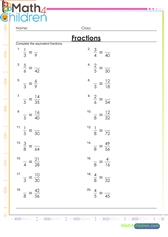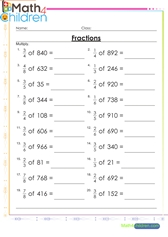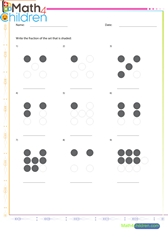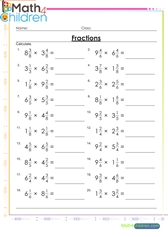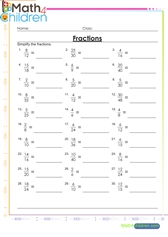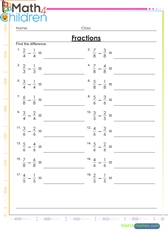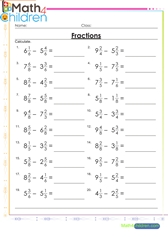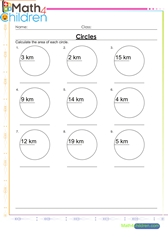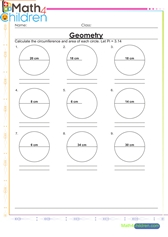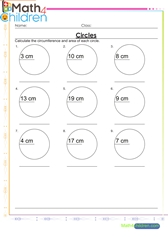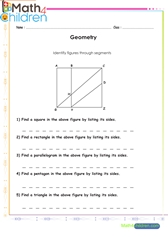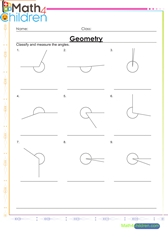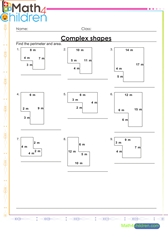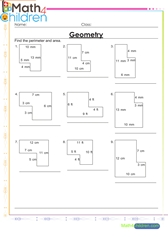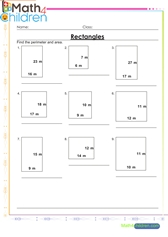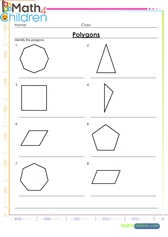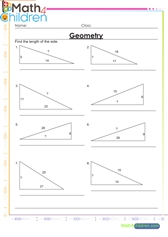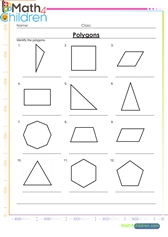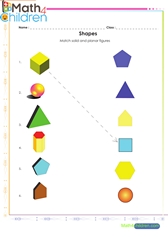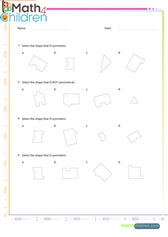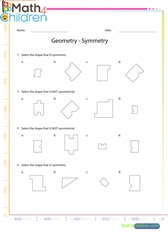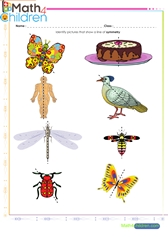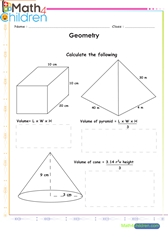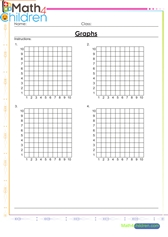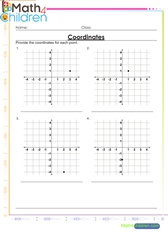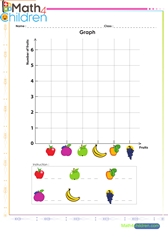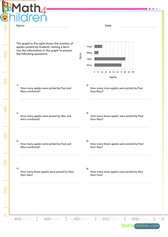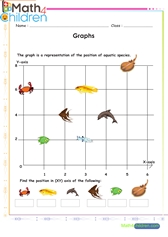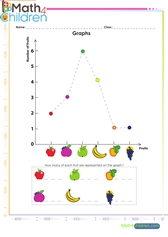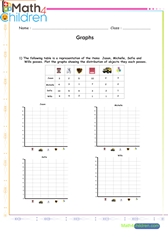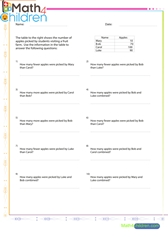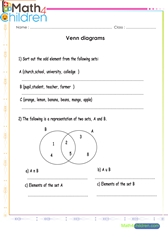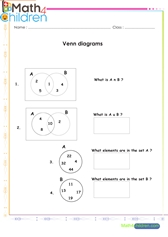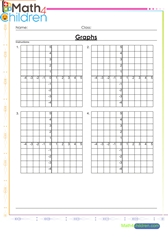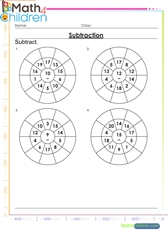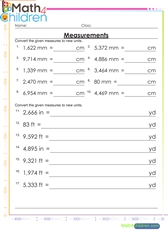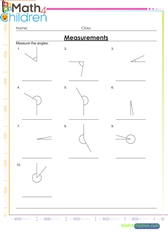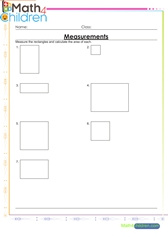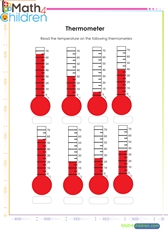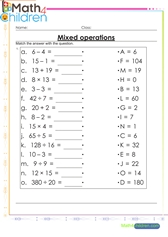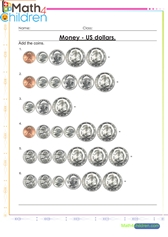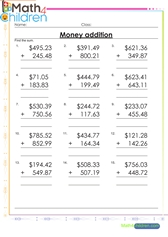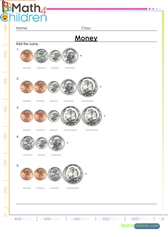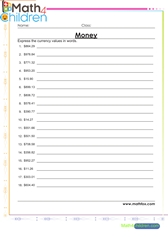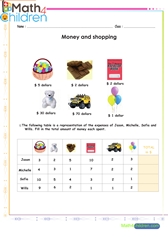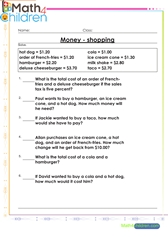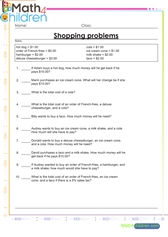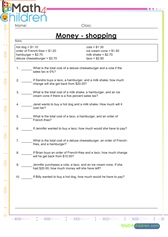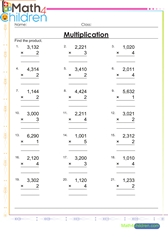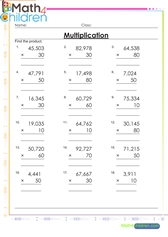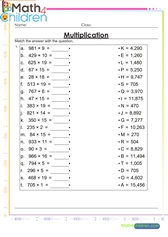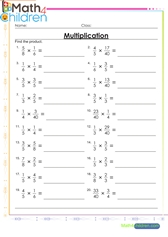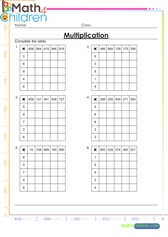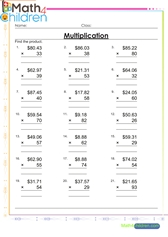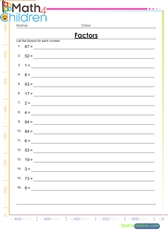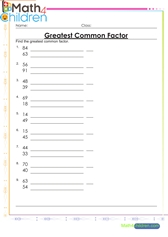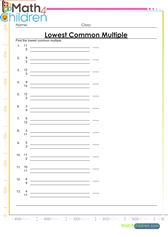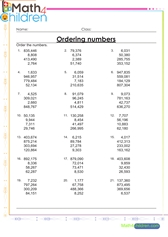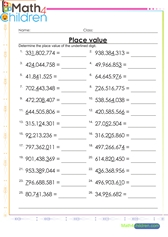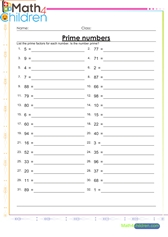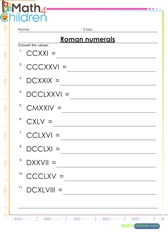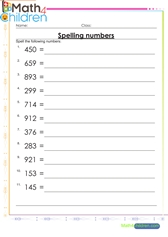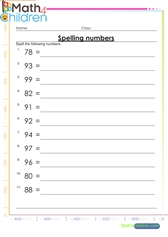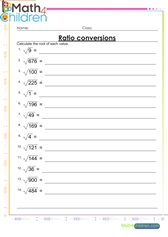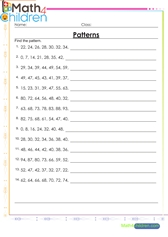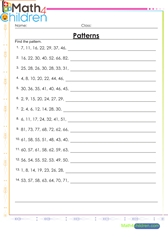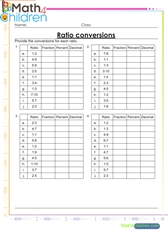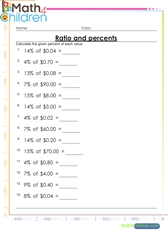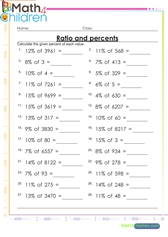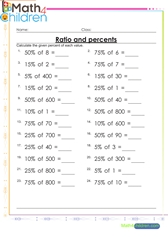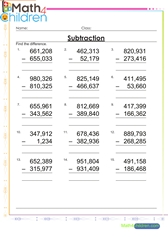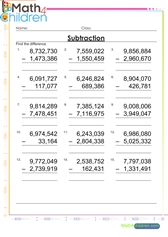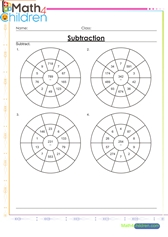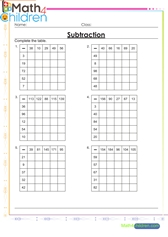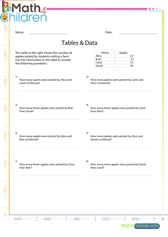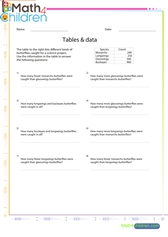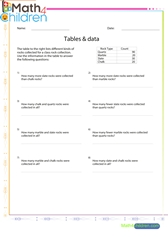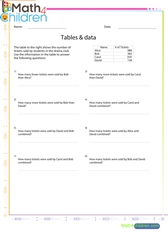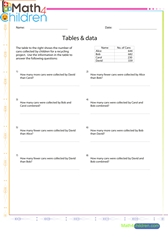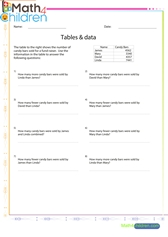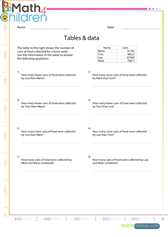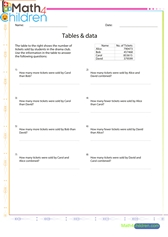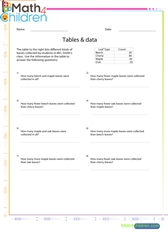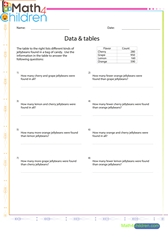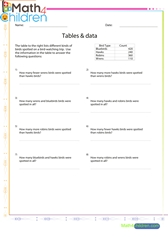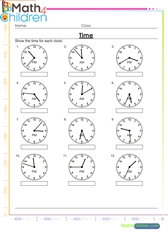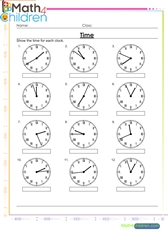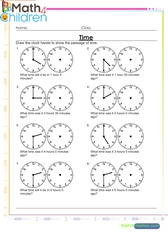Class 6 math worksheets pdf | Math Tests For Class 6
Class 6 math worksheets pdf | Math Tests For Class 6 | Revise math skills in class six with a free collection of test sheets.
Addition up to hundred thousands
Addition up to hundred thousands printable math worksheet
Algebra solving for the variable
Algebra solving for the variable printable math worksheet
Division of whole numbers by fractions
Division of whole numbers by fractions printable math worksheet
Multiplication of mixed fractions
Multiplication of mixed fractions printable math worksheet
Measure angles with a protractor
Measure angles with a protractor printable math worksheet
Perimeter and area of complex shapes
Perimeter and area of complex shapes printable math worksheet
Perimeter and area of rectangles
Perimeter and area of rectangles printable math worksheet
Bar and linear graphs practice sheet
Bar and linear graphs practice sheet printable math worksheet
Integers subtraction circle drill
Integers subtraction circle drill printable math worksheet
Measure rectangles and calculate the area
Measure rectangles and calculate the area printable math worksheet
Multiplication by 1 digit numbers
Multiplication by 1 digit numbers printable math worksheet
Multiplication by 2 digit numbers
Multiplication by 2 digit numbers printable math worksheet
Multiplication with money values
Multiplication with money values printable math worksheet
Convert ratios to percents fractions
Convert ratios to percents fractions printable math worksheet
Percentage of numbers round figures
Percentage of numbers round figures printable math worksheet
Subtract up to hundred thousands
Subtract up to hundred thousands printable math worksheet
Telling time roman numeral clocks
Telling time roman numeral clocks printable math worksheet
 Geometry
Geometry
Interactive Math Games - 5 th & 6th Grade
![]() Addition of 3 digit numbers - memory Game
Addition of 3 digit numbers - memory Game
![]() Algebra Game - Walk the Plank Game
Algebra Game - Walk the Plank Game
![]() Percentages to Decimals - Memory Game
Percentages to Decimals - Memory Game
![]() Greatest Common Factor - Memory Game
Greatest Common Factor - Memory Game
![]() Money and Price List - Basketball Game
Money and Price List - Basketball Game
![]() Patterns - Arithmetic, Geometric Progressions, Multiple Choice Quiz
Patterns - Arithmetic, Geometric Progressions, Multiple Choice Quiz
![]() Spelling Numbers - memory Game
Spelling Numbers - memory Game
![]() Roman Numerals Game - Football Game
Roman Numerals Game - Football Game
![]() Multiplication Game- walk the plank game
Multiplication Game- walk the plank game
![]() Multiplication Sentences - Basketball Game
Multiplication Sentences - Basketball Game
![]() Place value - walk the plank game
Place value - walk the plank game
![]() Spelling numbers above a thousand - memory game
Spelling numbers above a thousand - memory game
![]() Comparisons Game- En Garde Duel Game
Comparisons Game- En Garde Duel Game
![]() Geometry Game- Fing the teacher game
Geometry Game- Fing the teacher game
![]() Missing Number Game -Penalty shoot game
Missing Number Game -Penalty shoot game
![]() Subtraction Game 1 -10- En gard duel game
Subtraction Game 1 -10- En gard duel game
![]() Subtraction Game 1 - 10 - Fling the teacher game
Subtraction Game 1 - 10 - Fling the teacher game
![]() Subtraction Game - Basketball game
Subtraction Game - Basketball game
![]() Subtraction Game - Fling the teacher
Subtraction Game - Fling the teacher
![]() Telling the time game - memory game
Telling the time game - memory game
![]() Number Spelling Game - Memory Game
Number Spelling Game - Memory Game
![]() Number Spelling Game - Walk the plank game
Number Spelling Game - Walk the plank game
Interactive Math Quizzes - 6th Grade
![]() Sixth Grade Math Placement Test
Sixth Grade Math Placement Test
![]() Money
Money
- Money - USD - Learn how to sum up coins, dimes, nickels, dollars...etc
- Fractions with Money and pie chart representation
![]() Algebra Quizzes & Exercises
Algebra Quizzes & Exercises
![]() Decimals Quizzes & Exercises
Decimals Quizzes & Exercises
- Fractions to Decimals Interactive Quiz Exercise
- Percentages to Decimals Quiz
 Division Quizzes & Exercises
Division Quizzes & Exercises - Long Division Interactive quiz exercise
-
 Fractions Quizzes & Exercises
Fractions Quizzes & Exercises - Adding mixed fractions - quiz exercise
- Addition of fractions - quiz exercise
- Subtraction of Fractions quiz exercise
- Mixed to improper fractions quiz
- Multiplying Fractions Quiz Exercise
-
 Metric System & Measurement Quizzes & Exercises
Metric System & Measurement Quizzes & Exercises - Metric System Quiz Exercise
- Matching objects to metric systems or forms of measurements - quiz
-
 Multiples - HCF & LCM Quizzes & Exercises
Multiples - HCF & LCM Quizzes & Exercises  Multiplication Quizzes & Exercises
Multiplication Quizzes & Exercises  Order of Operation Quizzes & Exercises
Order of Operation Quizzes & Exercises - Order of operation -Brackets - Of - Division - Multiplication - Addition - Subtraction
 Powers Quizzes & Exercises
Powers Quizzes & Exercises - Powers quiz - What is two to the second power?
 Subtraction Quizzes & Exercises
Subtraction Quizzes & Exercises - Subtraction quiz exercise
 Decimals Quizzes & Exercises
Decimals Quizzes & Exercises
-
 Fractions Quizzes & Exercises
Fractions Quizzes & Exercises - Fractions multiplied by fractions
- Fractions multiplied by whole numbers
- Multiplying three fractions
- Fractions subtraction Exercise Quiz
- Rounding Fractions to the nearest whole numbers
-
 Number Theory: Factors, Divisibility, Factorisation, Place values, intergers, prime and composite numbers
Number Theory: Factors, Divisibility, Factorisation, Place values, intergers, prime and composite numbers
![]() Number Theory: Factors, Divisibility, Factorisation, Place values, intergers, prime and composite numbers
Number Theory: Factors, Divisibility, Factorisation, Place values, intergers, prime and composite numbers
- Common Factors - Greatest Common Factors Quiz
- Common Factors Matching Exercise
- Divisibility Exercise Quiz
- Factorisation Exercise Quiz
- Factors Quiz Exercise
- Lowest Common Multiple
- Multiples of Numbers
- Intergers Sentence Exercise
- Intergers greater than and less than
- Prime and Composite Numbers
- Intergers Number Line Quiz
![]() Percentages, Ratios, Proportions, Scales
Percentages, Ratios, Proportions, Scales
- Ratios Equivalent Rates and Rates Per Unit
- Comparing Percentages Exercise
- Converting percentages to decimals and fractions
- Percentage of numbers quiz
- Proportions Quiz Exercise
- Equivalent Ratios
- Ratio Tables Quiz
- Ratios Word problem quiz
- Ratios with illustrations quiz
- Scale Drawings Quiz
![]() Money Quizzes
Money Quizzes
- Price list Quiz - Hit the back button after taking this quiz
-
 Numbers Quizzes
Numbers Quizzes - Number Progressions quiz - Arithmetic and Geometric Progressions
- Roman Numerals to thousands Quiz
- spelling Numbers to millions quiz
- spelling numbers to thousands quiz
![]() Patterns Quizzes
Patterns Quizzes
Class 6 is the last chapter of the primary education of our learners. This will be the time they apply all their math learnings starting from first grade till fifth grade, their minds start to be molded and conditioned on solving math problems with advanced levels of complexities. The topics they have tackled from first grade will now serve as a review as they progress to this level. And as they will be going on a new journey at the secondary level, math problems would only become a piece of cake because they are already trained to solve hundreds of problems with similar difficulties in their previous levels. Class 6 can be considered as the beginning of middle school. And there is a clear connection between these levels, regardless of how your child's middle school functions. Children will be better prepared for middle school if they are more comfortable with these topics by the end of sixth grade. Here are four fundamental mathematical concepts students need to learn in sixth grade: Number System. In sixth grade, students continue to learn about these numbers and are also taught about negative numbers. They will begin to recognize and compare rational and integral numbers on a number line. Utilizing models will help your child understand these concepts much better. Encourage your learners to identify examples of positive and negative numbers in the real world (distance, temperature, sea level, etc.) and utilize models to understand the relationship between them for you to excel in this topic. Ratios. Models (tables, diagrams, etc.) will be used to guide students in making these connections and solving unit rate problems. Percents will also be taught, as well as how they relate to fractions and decimals. To do so, help your children in formulating real-world problems based on their understanding of ratios. Expressions & Equations. To solve problems, class 6 students use the correct order of operations, using parentheses and exponents. Your children are learning how to read, interpret, and write expressions and equations, as well as solve one-variable equations. Challenge your children to read and write expressions in an easier manner: “Add x from 9” as “9+x”. Or you can also help them to create and solve real-world problems with the use of variables. Geometry. They will learn how to compute the volume of 3-D figures using whole integers and fractional edges in this topic. Students begin to graph points on the coordinate plane to depict real-world problems. Teach your children to apply what they have learned in third grade to finding the area of a rectangle using its formula. Additionally, help them improve their understanding of the coordinate plane and start on plotting points using real-world situations with the help of graphing papers. These topics are taught because we want your children to be able to comprehend these arithmetic ideas accurately. You may either be ahead of your children's learnings or keep up with them, but either way, you will be able to connect more with them on what can be a difficult subject. Change can be difficult. Accept your feelings and thoughts if mathematics makes you feel uncomfortable. Keep working on your objectives. Consider who may have influenced your personal mathematical mindset. It is acceptable to make mistakes. We learn from them! Focus on problem-solving and using mistakes to foster a growth mentality by saying, "Let's try again."

